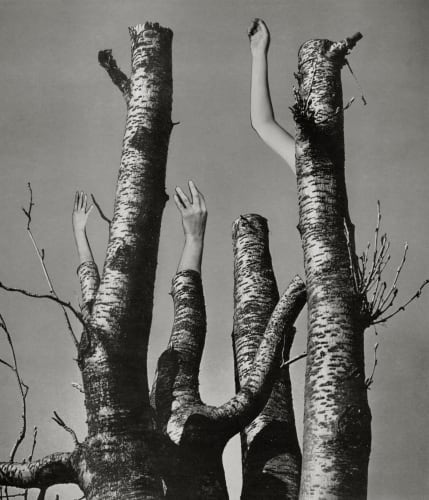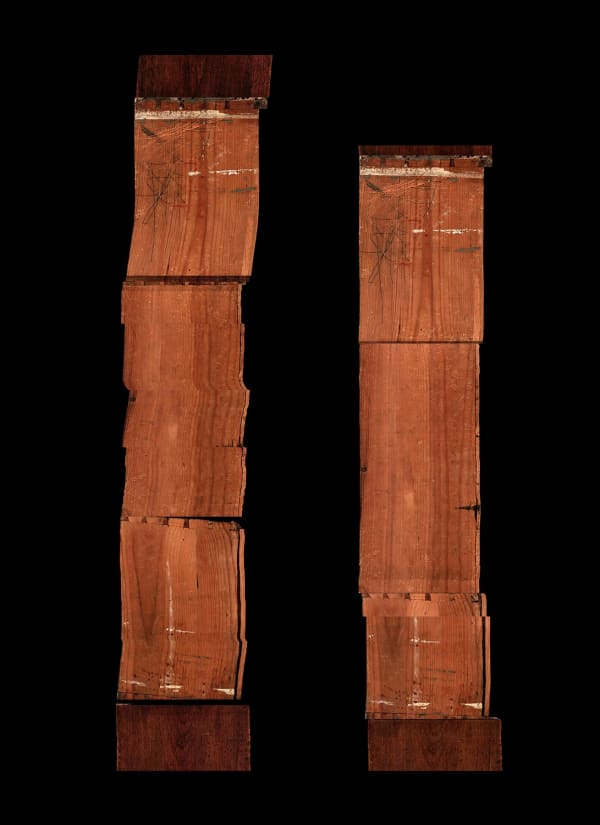Fotografisk Center | 'Cadastral': Eva Stenram
The exhibition Cadastral presents a wide selection of the Berlin-based Swedish artist Eva Stenram’s artistic activities over the years, with works from 2007 until today. In her practice, Stenram explores and investigates the visual idiom of photography. Often she uses archive material from popular culture and other sources, in the form of magazines, negatives, transparencies and images from the Internet, which she treats and modifies in a variety of ways. This photographic visual material is sometimes scanned, at other times re-photographed, and then altered through digital, analogue or physical manipulation.
Cadastral takes us on a journey through a variety of different spaces, places and materialities: from Stenram’s own personal and intimate rooms with elements such as dust, saliva and scanned night tables, to photographs from old travel magazines of various landscapes and cities as well close-ups of body parts from sport magazines, transformed through Stenram’s modifications. We go underground and into grottoes where stalactites and stalagmites have been given eyes, and all the way up to Mars, where dust from Stenram’s flat and the dusty desert landscape of Mars are mixed together. We are also taken into the world of sleep and the dreams of the night. You are invited to be a co-creator of the work F.E.L.I.C.E., where you can draw or write one of your recent night-time dreams on a postcard. The postcards are sent to the artist, which then matches various dreams and addresses, so that the participants will receive one another’s dreams, crisscrossing time, space and national boundaries.
Installation view at Fotografisk Center by Troels Jeppe
The title of the exhibition Cadastral refers, among other things, to land and property rights, but at the same time suggests lines and boundaries that cannot directly be seen with the human eye. It is thus also the duality between the visible and the invisible that is often at play in Stenram’s works. Stenram poetically creates new visual layers and thus also new meanings and associations in her works. Often the works move between dream and reality, blurring the boundaries between different spaces or places as well as the meanings of the images. In this way, the works also question what reality really is and how we understand and perceive the world.




